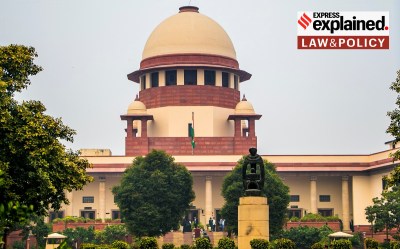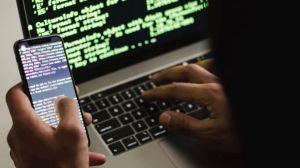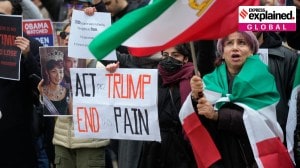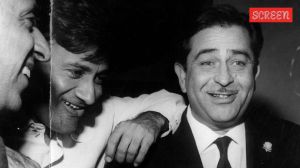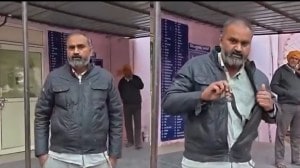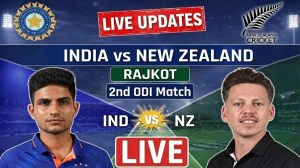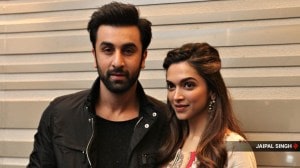Explained: Why did Ukraine apologise to Japan over an image of Emperor Hirohito?
Ukraine has offered 'sincere apologies to Japan for this mistake' and said it had 'no intention to offend the friendly people of Japan.' We explain the row over Emperor Hirohito.
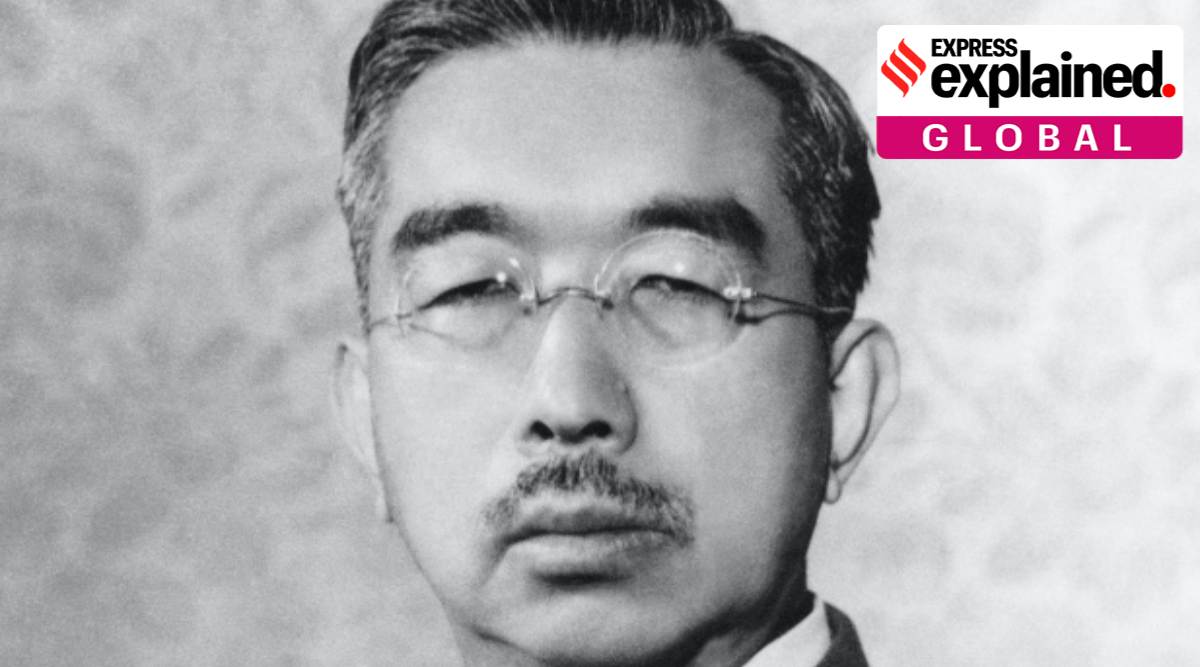 In this unknown location, Japan's Emperor Hirohito of Japan poses for a photograph in Sept. 1967. (AP Photo/File)
In this unknown location, Japan's Emperor Hirohito of Japan poses for a photograph in Sept. 1967. (AP Photo/File)Ukraine recently issued an apology after it posted a video featuring Japanese emperor Hirohito, along with the likes of Adolf Hiter and Benito Mussolini, to hit out at fascism.
A video that went up on Ukraine’s official Twitter handle condemned ‘ruscism’ or ‘rashism’, a portmanteau of Russia and fascism. After protests by the Japanese over the inclusion of Emperor Hirohito, the handle posted an edited version of the video, without the leader’s image.
Responding to Masahisa Sato, a Japanese politician belonging to the Liberal Democratic Party, Ukraine said, “Our sincere apologies to @japan for this mistake. We had no intention to offend the friendly people of Japan.”
Our sincere apologies to @japan for this mistake. We had no intention to offend the friendly people of Japan.
🇺🇦🇯🇵We have corrected it and posted the new video here: https://t.co/dvy7Pyptj3
— Ukraine / Україна (@Ukraine) April 24, 2022
In a later tweet, Sato said, “The Ministry of Foreign Affairs protested and requested the Ukrainian government to delete it, and the video in question seems to have been deleted.”
Despite calls to abandon the alliance with Ukraine in its war with Russia — in which Japan along with the West has imposed sanctions on Moscow — Deputy Chief Cabinet Secretary Yoshihiko Isozaki stated that Japan will continue to support Ukrainians. He, however, added that “portraying Hitler, Mussolini and Emperor Showa in the same context is completely inappropriate” and “extremely regrettable”.
Who is Emperor Hirohito?
Emperor Showa, referred to as Hirohito, the longest-reigning Japanese emperor, has a contentious legacy. Under his rule (December 25, 1926 – January 7, 1989), Japan fought alongside Germany and Italy in the Second World War against the Allies. However, he was never tried for war crimes. In fact, American military leader General Douglas Macarthur is reported to be the architect behind maintaining Hirohito’s innocence, as he believed retaining his power was essential to governing post-war Japan.
Historians are divided on the role of the monarch, who renounced his ‘divinity’ after Japan’s defeat in the war. While a commonly held view is that he was a powerless figure, subservient to the decisions made by the military, opposing arguments ascribe him more responsibility.
In 2018, the New York Times reported on findings in a diary maintained by an aide of the emperor, in which Hirohito was said to have been anguished right up to his death about his war responsibility. An expert on Japanese war memory quoted by the Times said, “This is another piece of the puzzle that very much confirms that the picture that was taking place before, which is that he was extremely culpable, and after the war, he was devastated about this.”
According to Pulitzer prize-winning historian Herbert P Bix, Hirohito took decisive actions in the events leading up to the war, such as the takeover of Manchuria in 1931 and going ahead with the attack on Pearl Harbour.
However, following Ukraine’s ‘rashism’ video, several Japanese felt that they could have used an image of Hideki Tojo, who served as the Prime Minister of Japan through most of the Second World War and was later convicted for war crimes.
Japan’s pacifism and response to the Ukraine war
Hirohito’s son Akihito, who ascended to the throne after him, spent most of his rule as a “neutral” figure, staying true to Japan’s post-war Constitution which renounced combat as a means to settle disputes. In 2015, he had expressed remorse over the war and hoped that “the ravages of war will never be repeated.” According to a New York Times report, his assertion that Japan has an “earnest desire for the continuation of peace” came in contradiction to its then Prime Minister-Shinzo Abe’s repeated efforts to revise the pacifist Constitution.
Under Abe, in 2015, the Japanese Parliament passed two laws that allowed the country to send its troops to fight overseas. While he was unable to revise Article 9 of the Constitution instituting Japan’s pacifism, he had laid the groundwork for the country to move past it, despite protests.
The war in Ukraine has pushed public opinion in favour of stronger military defences amid fears that Russia’s actions may embolden China to attack Taiwan. Japan also supported the Western sanctions against Moscow and accepted Ukrainian refugees. Japan has extended humanitarian aid and bullet-proof vests and helmets to Ukraine. Its Ministry of Defence in a statement said, “Japan is clearly against Russia’s aggression against Ukraine, which constitutes a blatant violation of international law.”
However, Japan still depends on Russia for its electricity needs. According to Financial Times, Tokyo imports 10 per cent of its gas supplies from Russia and Hiroshima about half. In April, Japan announced that it will start phasing out Russian coal and focus on renewables and nuclear sources to meet its demand. However, Japan’s Prime Minister Fumio Kishida has expressed reluctance to completely boycott Russia as it is tied to the Kremlin on the Sakhalin 1 and 2 projects for oil and gas.
Newsletter | Click to get the day’s best explainers in your inbox
- 01
- 02
- 03
- 04
- 05



